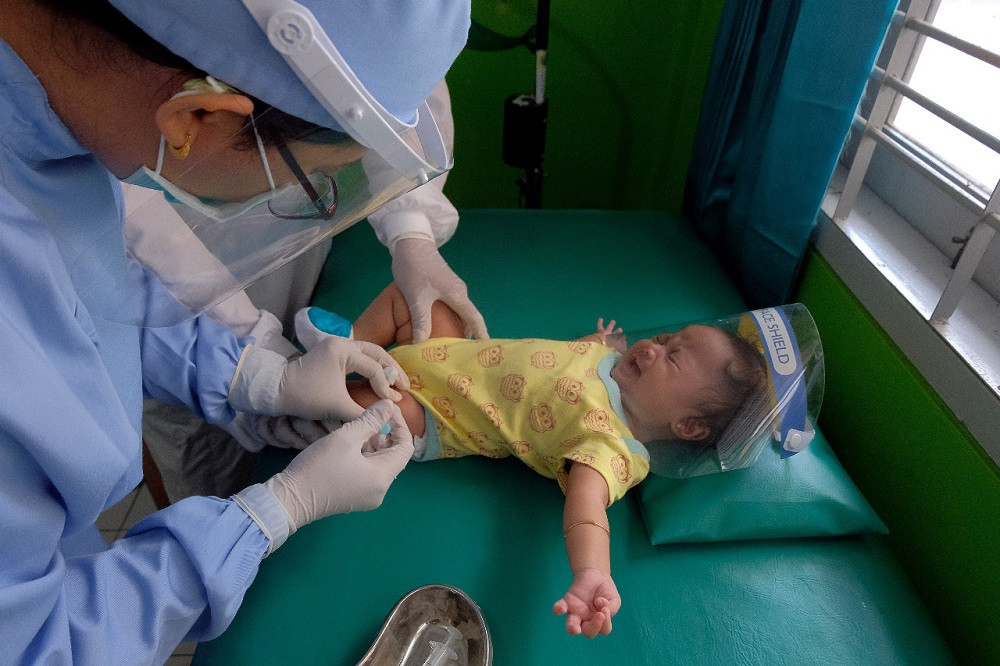Popular Reads
Top Results
Can't find what you're looking for?
View all search resultsPopular Reads
Top Results
Can't find what you're looking for?
View all search resultsSeize the moment to strengthen primary health care
Strong PHC-oriented health systems are critical to achieving Health for All.
Change text size
Gift Premium Articles
to Anyone
T
he world will soon enter the third year of the COVID-19 pandemic. In the South-East Asia region and across the world, the severity and scale of the crisis has exposed longstanding gaps in national and subnational health systems and stalled decades of economic growth and progress on poverty alleviation. The World Bank estimates that in 2020 alone, the Region suffered an economic contraction of -5.4 percent, pushing tens of millions of people into extreme poverty and limiting fiscal capacity for years to come.
Throughout the response, health system and cross-sectoral performance in the Region has yielded an array of lessons learned – lessons not only on how countries can better prevent, prepare for and respond to COVID-19 and other health emergencies, but on how they can build a health and economic recovery from COVID-19 that is fairer, healthier, more resilient and sustainable for all.
Countries of the Region unanimously agree: Primary health care (PHC) is the way forward. PHC services that are comprehensive, integrated at all levels of care, and which include all essential public health functions, achieve the highest possible level of health and well-being. They empower and engage individuals, families and communities, increasing social participation, self-care and self-reliance in health – outcomes that are essential to achieving universal health coverage (UHC).
Strong PHC systems meet people’s health needs close to where they live and work and provide a high return on investment. Between 2001 and 2011, a quarter of all economic growth in low- and middle-income countries resulted from improvements in health, with an average return on investment in health of 9 to 1.
Strong PHC services that are publicly financed help mitigate the social and economic determinants of health and reduce out-of-pocket costs. Among all World Health Organization regions, the South-East Asia region has the highest proportion of out-of-pocket spending on health, in addition to accounting for a disproportionate share of the world’s poor.
As part of International UHC Day celebrations, and in pursuit of a landmark resolution adopted at the WHO regional committee in September, WHO has launched a new Regional strategy for PHC that will help all countries of the Region build back better to achieve UHC and health security, and accelerate towards the health-related Sustainable Development Goals.
Several priorities must be addressed.
First, reviewing and updating health-related national policies and plans, ensuring they are PHC-oriented. Such processes could be facilitated by a national taskforce comprised of key stakeholders – including civil society – that draws on experiences and lessons learned, and which prioritizes expanding universal benefits package and ensuring essential public health functions.
Second, increasing and improving financing of PHC. Since 2019, WHO has advocated with all governments to allocate at least 1 percent of gross domestic product to PHC to achieve the 2030 targets. At minimum, a higher proportion of the additional resources available for health sector should be allocated to PHC.
Third, implementing governance reforms that enable action on the social determinants of health. Partnerships between the public and private sectors should be better defined and strengthened. Funds, functions and functionaries should be decentralized to enhance local oversight. Health-related ministries should develop and implement multisectoral action plans that promote a culture of shared ownership and accountability, in line with the “health-in-all-policies” approach.
Fourth, reorganizing PHC service delivery. Policies, strategies and service standards are required to support a continuum of care across programs and services, ensuring they are people-centered and community-led. Essential public health functions and programs must be better integrated, and the specific needs of communities should be accounted for, including in urban areas.
Ongoing efforts to strengthen the availability, competency, and performance of the PHC workforce are essential. In all countries of the Region, the full array of available health workers should be included in and organized as multidisciplinary teams that are capable of meeting the full range of people’s health care needs throughout the life-course.
New innovations – particularly in digital and disruptive technologies – must be appropriately leveraged and introduced in a way that is context-specific, and which is ethical, safe, secure, reliable, equitable and sustainable.
Through it all, we must continue to not just ask, but answer a basic yet vital question: Who is missing out and why? To do this, we must strengthen health information systems, ensuring that data are stratified by key equity indicators such as sex, income and age; that they prioritize the needs of PHC providers and managers; and that they are shared with communities and civil society to promote accountability and trust – values that are at the core of WHO’s new regional strategy.
Our journey will not be easy, but it is a journey that will yield game-changing health, social and economic progress in the months, years and decades ahead. To leverage this once-in-a-century opportunity, we have the will and the way forward. We must act now.
***
The writer is regional director, WHO South-East Asia.











